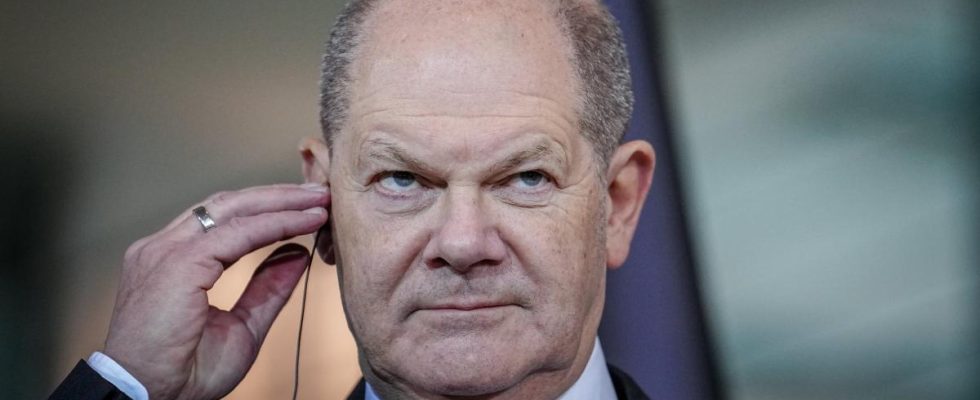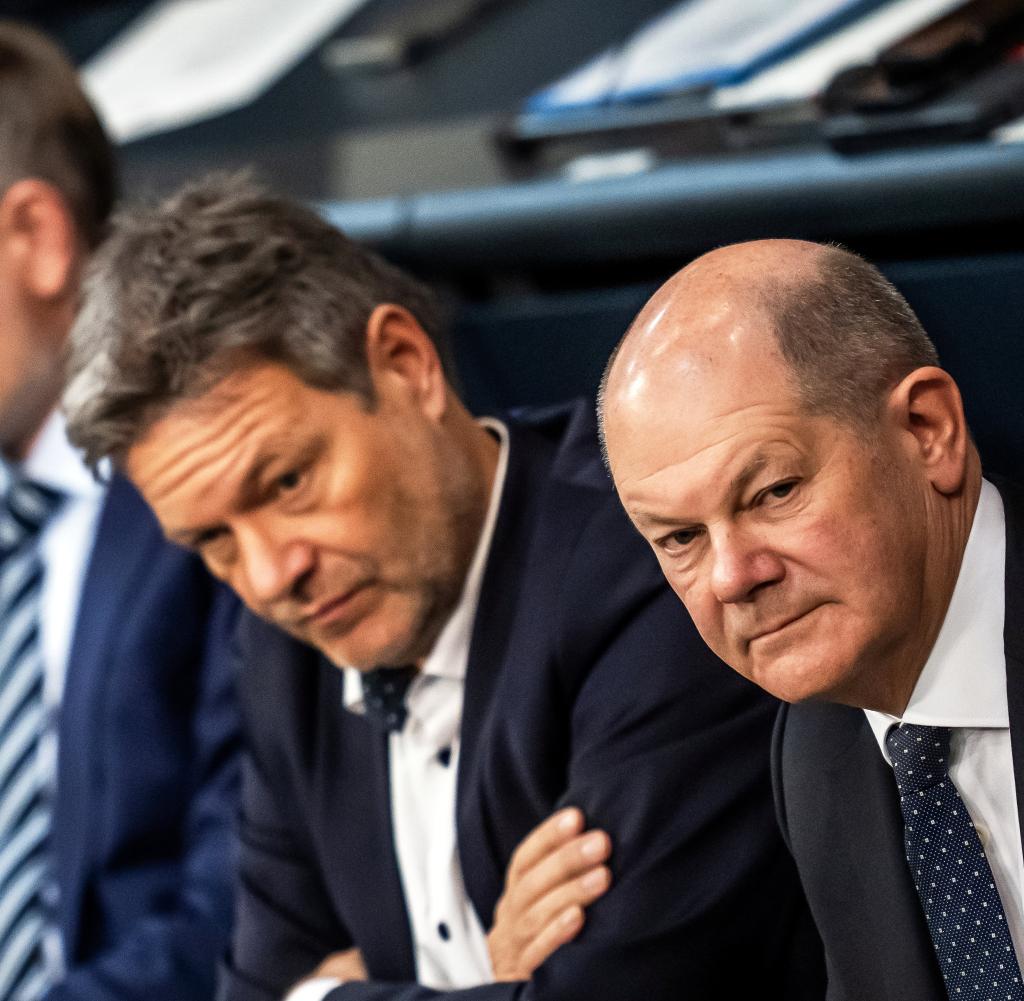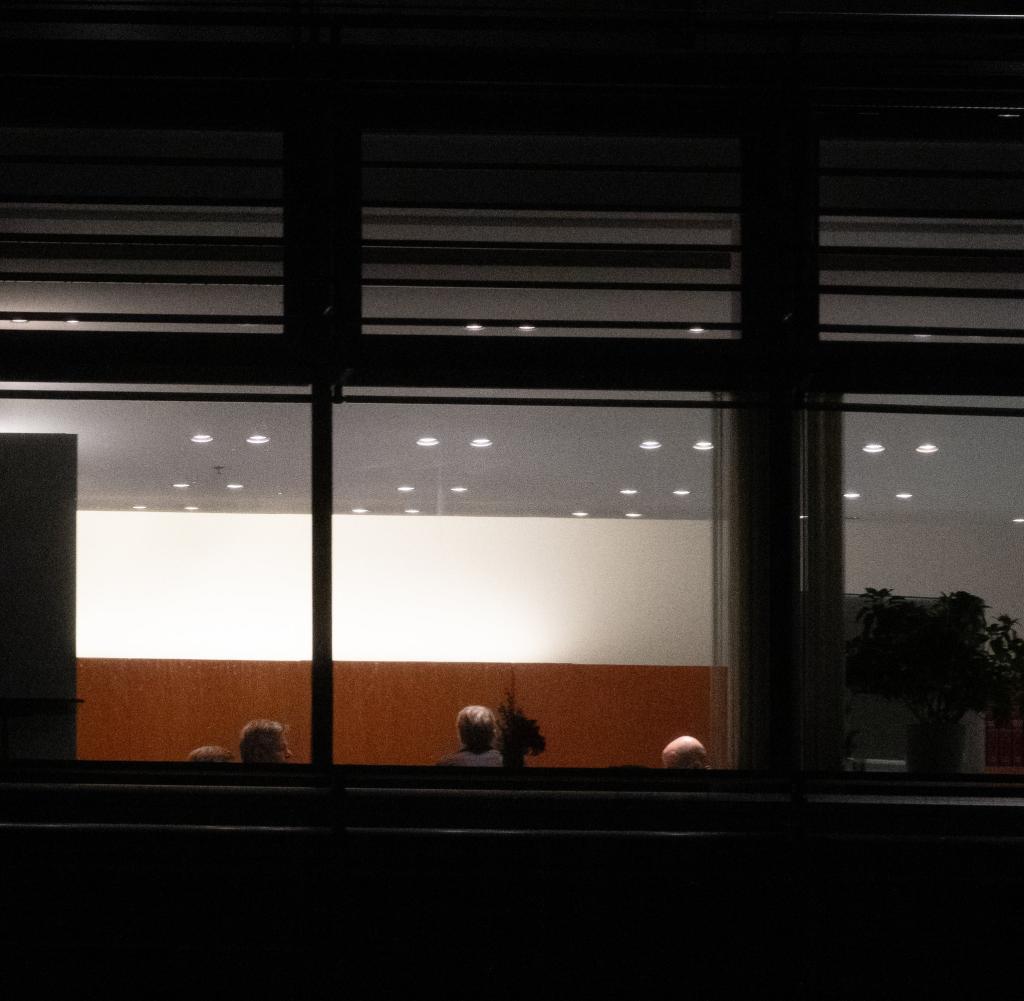Scholz, Lindner and Habeck are postponing talks again
Budget crisis still unresolved – negotiations postponed overnight
The coalition leaders have broken off their negotiations on the 2024 budget. FDP parliamentary group leader Christian Dürr is relying on a solid budget planned “in peace”. WELT editor Marko Reinke stands in front of the Chancellery in Berlin and summarizes the developments.
The talks on the budget crisis should enter the “decisive round” on Sunday evening. But Olaf Scholz, Christian Lindner and Robert Habeck postponed the round. The Chancellor appeared “confident” on Monday – but the talks were postponed again.
bThere is still no breakthrough in the negotiations between the coalition leaders about a budget for 2024. Late on Monday evening, talks between Chancellor Olaf Scholz (SPD), Vice Chancellor Robert Habeck (Greens) and Finance Minister Christian Lindner (FDP) were postponed again, according to information from the German Press Agency. Negotiations will continue on Tuesday morning.
Federal Chancellor Olaf Scholz had previously reported on progress in the discussions on the 2024 federal budget. The Chancellor told journalists in Berlin: “We have made so much progress that you can be very confident that we will be able to communicate the result to you soon.” At the same time, Scholz pointed out that it was a “big task.” to draw up a budget after the budget ruling of the Federal Constitutional Court.
Deputy government spokesman Wolfgang Büchner added that, in the Chancellor’s opinion, “a lot of questions were clarified” in the confidential top-level discussions. As for the prospect of an early agreement, Büchner said: “Any optimism is justified.”
In a ZDF interview this morning, SPD leader Saskia Esken was “extremely confident” that the budget dispute in the coalition will be resolved this week. “We have taken significant steps further,” said the SPD leader in the ZDF “Morgenmagazin”. “Something will happen now and we have a basis for continuing to govern.” The SPD leader made the following comments after another top round of the coalition on budget planning for 2024.
Esken emphasized that the Federal Constitutional Court “in no way dealt with the welfare state” in its ruling. Instead, it was about the exceptional rule of the debt brake. The coalition must now find “other means” to finance tasks such as supporting Ukraine and achieving climate neutrality. Chancellor Olaf Scholz also expressed confidence at the SPD party conference at the weekend that an agreement could be reached. He also ruled out cutting social benefits.
The coalition partner FDP was more reserved. Its Secretary General Bijan Djir-Sarai did not want to be tied down to a time frame: “In my view, thoroughness is much more important than any time components,” he said after a meeting of the executive committee in Berlin.
Dürr against tax increases
FDP parliamentary group leader Christian Dürr once again spoke out against tax increases to solve the budget crisis. “Tax increases in a country with the highest taxes are prohibited,” he said on Sunday evening in the ZDF program “Berlin Direkt”. Anyone who talks about wanting to tax the “super-rich” more heavily in Germany is usually talking about medium-sized family entrepreneurs. “That means you’re not taxing anything other than jobs here,” he said.
Dürr advocated not abandoning the consolidation path when preparing the budget. “The federal budget will amount to around 450 billion euros next year. That is significantly more than in pre-Corona times. That means the overall volume has actually increased,” he said. Now you can “take your time” and take a closer look at where you can save so that you can set up a solid budget. “Solidity must apply now. That’s what the federal states still have to do now. The federal government is now delivering.”
Dürr explained that he didn’t think much of red lines and that he didn’t understand Chancellor Olaf Scholz (SPD) to draw them when it came to social spending. It’s not about tearing down the welfare state, but rather looking at how to get more people into work: “And I don’t think there’s much disagreement in this coalition.” Scholz had emphasized that there would be no reductions with the SPD of the welfare state in Germany.
There is still light: crisis meeting in the Chancellery on Sunday
Source: dpa/Christophe Gateau
The traffic light coalition is struggling to plug a 17 billion euro hole in next year’s budget and to enable investments in climate protection and the modernization of the economy in the coming years. At the weekend, the SPD indirectly campaigned for a renewed suspension of the debt brake. The party conference decided that “constitutionally stipulated leeway for the budget” must be used in the interests of the population. The war in Ukraine created the prerequisites for an emergency situation that would enable increased borrowing.



